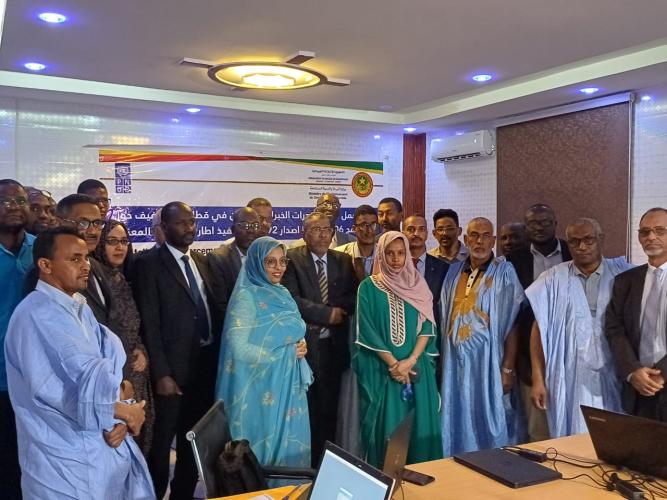Context
The years 2023-2024 constitute a critical phase for the UNFCCC process and for the Paris Agreement, since the Enhanced Transparency Framework (ETF) will enter full implementation mode. The process will be marked by a large-scale transition of Parties from current measurement, reporting and verification (MRV) systems to the ETF, which requires all Parties to operate according to the same operational procedures, officially called “Modalities, Procedures and Guidelines”, with some flexibility for Parties that are developing countries and need it according to their capacities. Currently, Parties are at different stages in terms of their ability to effectively implement existing MRV provisions and prepare for the transition to the ETF.
The Paris Agreement ETF builds on and improves existing measurement, reporting and verification (MRV) arrangements under the Convention. With the adoption of the Modalities, Procedures and Guidelines (MPG) for the ETF and the corresponding common reporting tables, common table formats and outlines, developing country Parties are already planning to transition to the ETF, and some have already taken the first steps in this direction. These MPGs provide specific details on the information that countries must report, the format in which this information must be presented, and the process for reviewing the reported information. The agreements were reached by countries at COP24 in 2018 and were finalized at COP26 in 2021.
In Mauritania, an inventory system is being set up. The Ministry of Environment and Sustainable Development (MEDD) is the focal point of the United Nations Framework Convention on Climate Change (UNFCCC) and has full responsibility for the preparation of the national Greenhouse Gases (GHG) inventory in accordance with the IPCC guidelines and in accordance with the decisions of the Conferences of the Parties. For the preparation of the inventory, the responsibilities are divided between three levels:
- Coordination unit
- Participants or focus groups
- Expert Panel
As part of the implementation of the UNFCCC and the Paris Agreement, the training of experts to improve knowledge in the preparation of GHG inventories and mitigation actions, support for the development of a continuously functioning national MRV system, participation of experts in all regional and international training activities on GHG emissions are some of the needs identified by the international consultation analysis (ICA) exercise for the Mauritania’s first Biennial Update Report (BUR1) .
CRTs play a critical role in the accurate and consistent reporting of greenhouse gas (GHG) emissions to the UNFCCC. These tables provide a standardized framework that allows countries to report their emissions data in a clear, transparent and comparable way. The CRTs are organized into a series of tables and sub-tables, each designed to capture specific aspects of GHG emissions and removals. When using CRTs, countries are required to provide detailed information on their emissions sources, methodologies and data quality. This transparency helps build trust between countries and allows for in-depth review of reported data.
As such, the CBIT-GSP in collaboration with UNDP on behalf of the Belgian Government on climate transparency intend to organize a technical and practical training session for national experts from Mauritania on the fundamental bases of the inventory under the new IPCC 2006 tool integrating the CRT particularly in the ENERGY and AFOLU Sector which constitute the two key priority sectors. This support responds to the request for support made by Mauritania on the CBIT-GSP Climate Transparency Platform.
The Energy sector will be provided by the CBIT-GSP and the AFOLU sector will be provided by the UNDP.
Objectives of the Workshop
The training aims to strengthen the capacities of targeted countries on greenhouse gas emissions inventory methodologies with the new version of the IPCC 2006 tool. This will specifically involve training national experts from Mauritania :
- for the use of the software and guidelines of the new version of the IPCC 2006 tool;
- procedures for collecting, analyzing and archiving data and information relating to each sector;
- on the data required by the IPCC tool for estimating GHG emissions;
- on the identification of emission factors and/or variations in carbon stocks to be used;
- on the estimation of GHG emissions.
- quality assurance (QA) and quality control (QC) procedures;
- on the analysis of key categories;
- on the calculation of uncertainties linked to the GHG inventory;
- on extracting and compiling CRT tables.
Expected results
- Participants are equipped with the use of the software and the guidelines of the new version of the IPCC 2006 tool and the procedures for collecting, analyzing and archiving data and information relating to each sector.
- Participants are able to estimate GHG emissions using the new version of the IPCC2006 tool in both sectors.
- The analysis by key category and the calculation of uncertainties are mastered by the participants.
- Participants master quality assurance (QA) and quality control (QC) procedures.
- Participants are able to extract the CRT tables for the development of the BTR.
